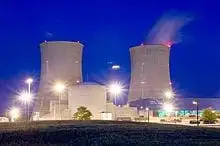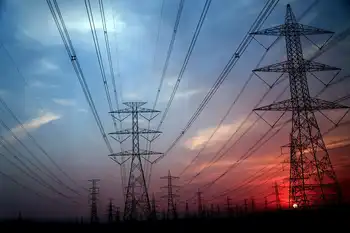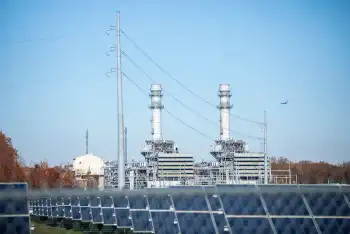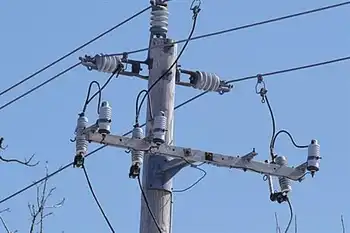Gas and Hydro In Turmoil
Homeowners, businesses and industry reeled from unprecedented electricity price increases in Ontario's failed attempt at deregulation.
And natural gas customers got socked by a government-approved retroactive rate increase.
The parallel events sent people reeling as they opened their bills to find soaring charges that many customers simply could not afford.
A massive public outcry led by opposition MPPs resulted in an embarrassing retreat by the Conservative government from the controversial electricity program.
Similar complaints resulted in Union Gas delaying -- but not forgoing -- its retroactive increase approved by the Ontario Energy Board.
The electricity fiasco also caused headaches for municipal utilities such as EnWin of Windsor, which had to spend millions to revamp its computerized billing procedures to handle the complex deregulation market, only to go back to square one after six months.
Before May 1, electricity was regulated at 4.3 cents per kilowatt hour, but after that date the market opened under a complicated scheme that saw prices vary by the minute.
Local utilities, scrambling to come up with a way to charge a reasonable rate based on prices but overwhelmed by the complexity of it all, handled billing in different ways.
In Windsor, for example, EnWin hired new staff, developed new billing software and increased meter reading frequency from every two months to monthly.
It averaged the price over a month and charged that rate, based on actual electricity use. Consumers were not able to save money by using power during off-peak times when the prices dropped, because the rate charged was based on the average.
An unusually hot summer resulted in unprecedented power demand throughout Ontario, driving up prices and bills by up to 100 per cent at times.
Rates began to fall in the autumn, but the damage was done. As people opened their bills the howls of outrage became deafening.
Premier Ernie Eves abruptly cancelled deregulation by freezing rates at 4.3 cents per kw/h until 2006 and agreeing to reimburse customers the difference since May 1.
But he didn't save Union Gas customers. The utility last year applied for a retroactive rate hike because of higher gas costs in the winter of 2000, which affected its operating costs. It sought and received energy board approval to charge each residential customer an extra $120 -- spread over six months.
Opposition MPPs, including Dwight Duncan of Windsor-St. Clair protested, but the energy board decision was not cancelled.
To soften the blow, Union Gas agreed to start charging the retroactive increase in January, after the Christmas season and to "work with" customers who had trouble meeting the payments.
Related News

Nuclear plant workers cite lack of precautions around virus
HARTFORD - Workers at Connecticut's only nuclear power plant worry that managers are not taking enough precautions against the coronavirus after 750 temporary employees were brought in to help refuel one of the two active reactors.
Ten employees at the Millstone Power Station in Waterford have tested positive for the virus, and the arrival of the temporary workers alarms some of the permanent employees, The Day newspaper reported Sunday.
"Speaking specifically for the guard force, there's a lot of frustration, there's a lot of concern, and I would say there's anger," said Millstone security officer Jim Foley.
Foley, vice president of the local…





